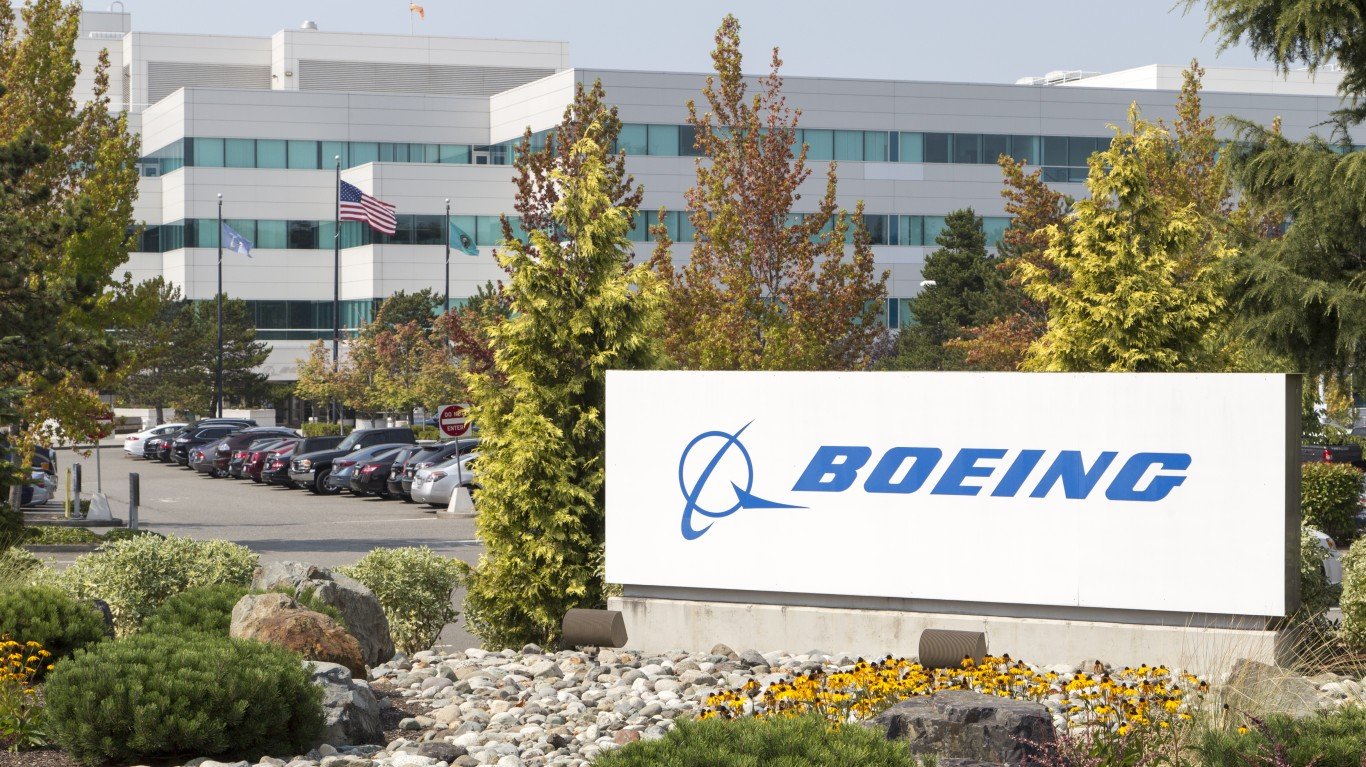

In a press release Tuesday afternoon, Boeing Co. (NYSE: BA) made the case for a $60 billion (minimum) aid package to support the aircraft manufacturing industry. The company said the industry supports 2.5 million jobs and 17,000 suppliers, all of whom contribute to an industry that is the nation’s top exporter.
The company also filed a notice with the U.S. Securities and Exchange Commission (SEC) reporting that, as of March 13, Boeing had fully drawn on its $13.8 billion two-year delayed draw loan credit agreement with a group of banks, including Citibank, JPMorgan Chase, Bank of America and Wells Fargo. The loan agreement was announced in early February and was expected to be fully drawn by the end of 2020.
Boeing’s struggles with getting its best-selling 737 Max passenger jet recertified and back in the air are well known. Until the coronavirus outbreak, the company was targeting April as the point at which the Federal Aviation Administration (FAA) would recertify the 737 Max. Boeing could restart delivery in the summer of the 400+ aircraft it has built and stored. That would get the Boeing cash machine running again.
However, the coronavirus pandemic has compounded the company’s issues as airlines have been forced to cut back on flights. Governments around the world are restricting flights as they try to stem the spread of the virus, compounding Boeing’s cash flow issues. Even planes like the 787 that are still being manufactured cannot be delivered as scheduled because the airlines are also trying to hoard cash.
Boeing’s credit rating is also fast approaching junk status. Moody’s lowered the company’s credit rating to Baa1 in January. That’s just three notches above junk. S&P Ratings downgraded the company to BBB on Monday, only two notches above junk. In its $13.8 billion lending agreement, the company needs to “deliver a certificate confirming that … the Company’s long-term senior unsecured non-credit-enhanced debt ratings from any two of S&P, Moody’s and Fitch are better than or equal to BBB-, Baa3 and BBB-, respectively.”
The trade-off between offering Boeing a lifeline and punishing the company for its role in the deaths of 346 people in two fatal 737 Max crashes is practically guaranteed to inflame the conversation regarding a government bailout of an arrogant and self-satisfied corporation.
If Boeing is to get a federal bailout, a couple of things are likely to happen. The company’s $8.22 annual dividend (yielding 6.62% at Tuesday’s closing price) almost certainly will have to be slashed. That possibility likely is largely responsible for Wednesday’s premarket trading drop of more than 17%.
A federal bailout also is likely to bring with it the issuance of preferred shares to ensure that the U.S. Treasury is repaid. Another possibility is a cash infusion from Warren Buffett, who said in January that he wasn’t interested in lending money to Boeing because Berkshire Hathaway Inc. (NYSE: BRK-A) doesn’t make bank loans.
Yet, if Boeing is going to have to issue preferred stock anyway, Buffett’s interest might be piqued. The $10 billion he invested in Occidental Petroleum Corp. (NYSE: OXY) to help fund that company’s acquisition of Anadarko pays an 8% coupon and has conversion rights.
Buffett also made a similar deal with Goldman Sachs Group Inc. (NYSE: GS) back in 2008 when he fronted the bank $5 billion in exchange for a 10% coupon and conversion rights for 43.5 million shares of common stock. That investment returned an estimated $3.7 billion to Berkshire Hathaway.
The simple fact is that the Trump administration cannot afford to let Boeing fail. How it plans to help the company through this perfect storm remains to be seen, however.
About an hour before the opening bell on Wednesday, Boeing stock traded down around 15% at $105.50 in a 52-week range of $101.25 to $398.66. The low was posted Tuesday.
Take This Retirement Quiz To Get Matched With An Advisor Now (Sponsored)
Are you ready for retirement? Planning for retirement can be overwhelming, that’s why it could be a good idea to speak to a fiduciary financial advisor about your goals today.
Start by taking this retirement quiz right here from SmartAsset that will match you with up to 3 financial advisors that serve your area and beyond in 5 minutes. Smart Asset is now matching over 50,000 people a month.
Click here now to get started.
Thank you for reading! Have some feedback for us?
Contact the 24/7 Wall St. editorial team.
 24/7 Wall St.
24/7 Wall St.